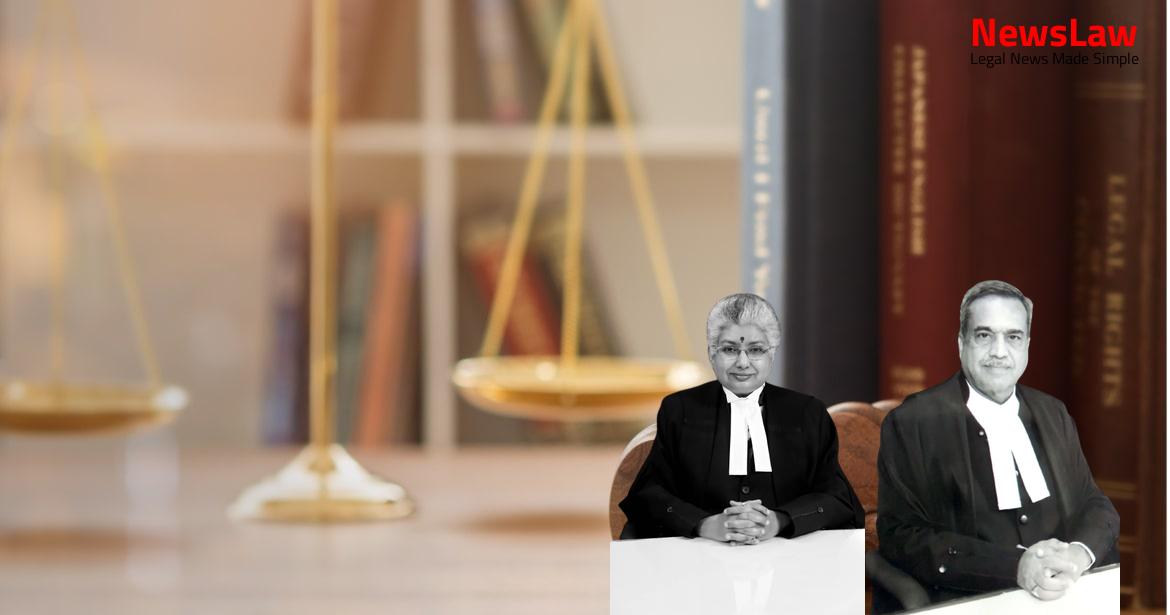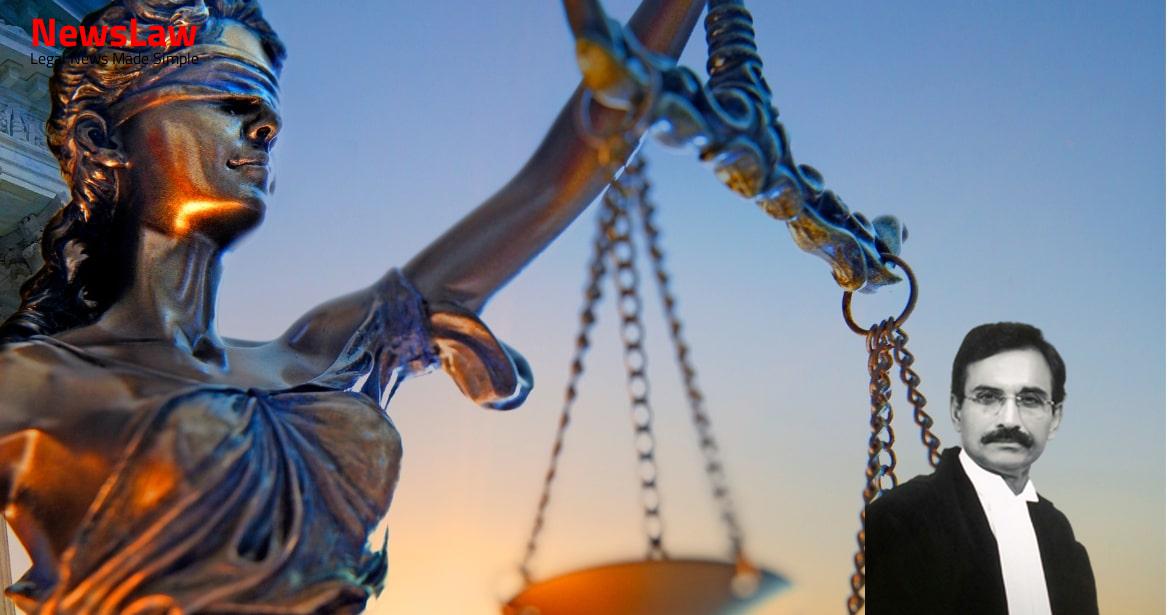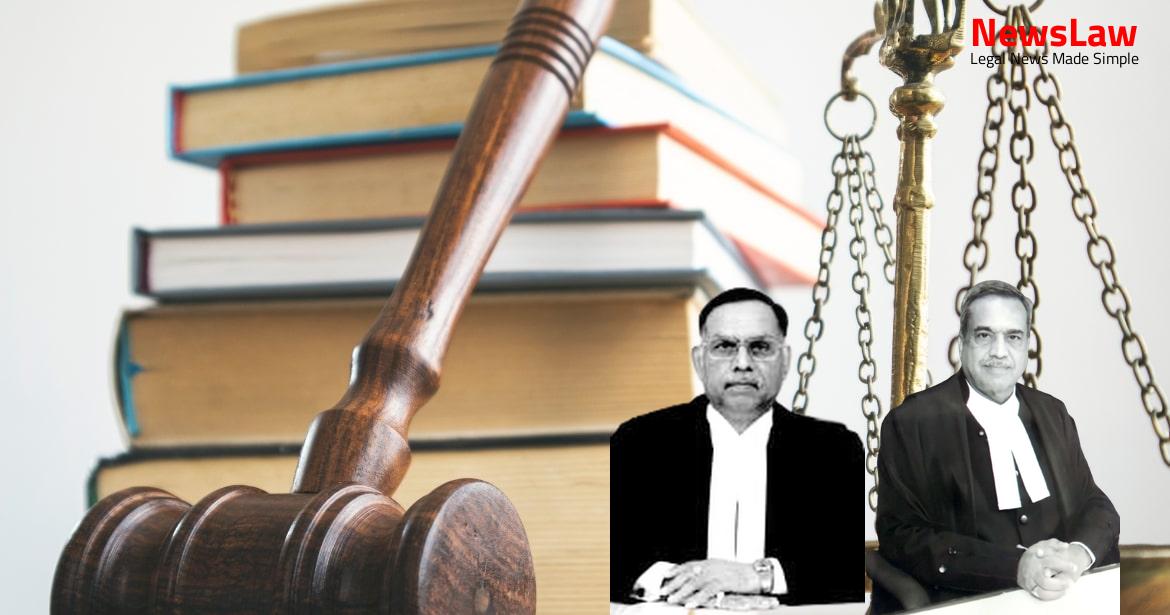The Court’s in-depth analysis of the interpretation of Section 10B(8) of the IT Act underscores the significance of procedural compliance in tax law matters. The decision unravels intricate legal arguments related to exemption provisions, strict requirements, and the consequences of non-compliance. Delve into the complexities of tax law through this enlightening legal analysis.
Facts
- The ITAT decided in favor of the assessee stating the declaration under Section 10B(8) was filed before the due date of filing income tax return.
- ITAT allowed the carrying forward of losses under Section 72 of the IT Act.
- The High Court dismissed the Revenue’s appeal, confirming the ITAT’s decision.
- The Revenue appealed to the High Court against the ITAT’s decision to allow the assessee’s claim for carrying forward of losses under Section 72 of the IT Act.
- The assessee had filed a note along with the original return on 31.10.2001, stating eligibility for exemption under Section 10B of the IT Act and not carrying forward losses.
- A declaration dated 24.10.2002 was submitted by the assessee to the Assessing Officer, waiving the exemption under Section 10B for A.Y. 2001-02.
- The CIT(A) upheld the Assessing Officer’s decision to deny the claim of carrying forward losses under Section 72 of the IT Act in an order dated 19.01.2009.
- The respondent-assessee is a 100% export-oriented unit engaged in call center and IT Enabled services.
Also Read: Challenging Legal Presumptions in Negotiable Instrument Cases
Arguments
- The ASG argued that the requirement under Section 10B (8) of the IT Act is a procedural requirement.
- The ASG further contended that the accountant’s certificate under Section 10B (5) is only required if the assessee claims the deduction under Section 10B.
- The ASG highlighted that in the present case, there was no claim for any deduction under Section 10B (1) at any time.
- It was emphasized that the Form submission deadline under Section 10B (8) is considered as directory based on precedents.
- The ASG mentioned a case involving additional depreciation under Section 32(1) (ii-a) and how the Form submission deadline was treated as directory.
- The ASG argued that filing Form 3-AA after the return was permissible, as shown in a specific case related to additional depreciation.
- The ASG pointed out that the High Court has not adequately addressed the consequences of non-compliance with Sections 10B (5) and 10B (8) of the IT Act.
- The ASG contended that the failure to file the declaration within the specified timeframe could result in denial of benefits under Section 10B (8).
- The counsel for the assessee referred to several judgments that support the argument that the requirement of submitting a document is mandatory, but the timing of submission is only directory.
- The counsel argued that Section 10B is a deduction provision and not an exemption provision, citing the case of CIT v. Yokogawa India Ltd. (2017) 2 SCC 1.
- The counsel prayed for the dismissal of the appeal based on the principle of stare decisis and the cited decisions.
Also Read: Legal Analysis of Admission Irregularities in Educational Institutions
Analysis
- Revised return under Section 139(5) cannot be filed to withdraw a claim and subsequently claim carried forward or set-off of any loss.
- The claim under Section 10B(8) cannot be compared to claiming additional depreciation under section 32(1)(ii-a) of the Act.
- Filing a revised return under Section 139(5) can only substitute the original return under Section 139(1) and cannot transform it into a return under Section 139(3) to avail benefits of carrying forward or set-off of any loss under Section 80 of the IT Act.
- The significance of filing a declaration under Section 10B(8) is crucial and must be fulfilled before the due date of filing the return as per sub-section (1) of section 139 of the IT Act.
- The requirement of submission of declaration under Section 10B(8) is mandatory, but the time limit for filing it is seen as directory.
- Furnishing the declaration under Section 10B(8) post the date of filing the return would falsify the accountant’s report and nullify the claim.
- Both conditions for claiming the benefit under Section 10B(8) are mandatory – filing the declaration and doing so before the due date of filing the original return.
- Strict compliance with exemption provisions is necessary, and exemption claims should be interpreted literally, particularly in cases of exemption sought by an assessee.
- Withdrawing a claim post filing the return does not align with the strict requirements of Section 10B(8) for furnishing the declaration before the due date of filing the original return.
- The decision of the Delhi High Court in the Moser Baer case does not apply directly to the scenario where conditions under Section 10B(8) are not met.
- Chapter III and Chapter VIA of the Act operate differently, with Chapter III dealing with ‘incomes which do not form part of total income’ and Chapter VIA dealing with ‘deductions to be made in computing total income’.
- Section 10B(8) gives the assessee the right to opt out of Section 10B by furnishing a declaration in writing before the due date of filing the return.
- Non-compliance with the twin conditions of Section 10B(8) would render the assessee ineligible for the exemption under Section 10B(8) of the IT Act.
- Arguments presented by the counsel for the petitioner were not relied upon by the Court.
- The Court did not find merit in the contentions made by the petitioner’s counsel.
- Counsel’s submissions were disregarded by the Court in reaching its decision.
- The High Court committed a grave error by deeming the declaration requirement under Section 10B(8) of the IT Act as mandatory but the time limit for filing the declaration as directory.
- To claim benefits under Section 10B(8) of the IT Act, both furnishing a declaration before the assessing officer and doing so before the due date of filing the original income tax return under section 139(1) are compulsory and must be complied with.
- The question of law is answered in favor of the Revenue and against the assessee.
- The orders of the High Court and ITAT are set aside, concluding that the assessee cannot avail the benefit under Section 10B(8) of the IT Act if the twin conditions are not met.
- The appeal is allowed as the earlier decision is deemed erroneous and in conflict with the clear language of Section 10B(8) of the IT Act.
Also Read: Legal Analysis: Driver Appointment Dispute
Case Title: THE PRINCIPAL COMMISSIONER OF INCOME TAX III, BANGALORE Vs. M/S WIPRO LIMITED (2022 INSC 687)
Case Number: C.A. No.-001449-001449 / 2022



